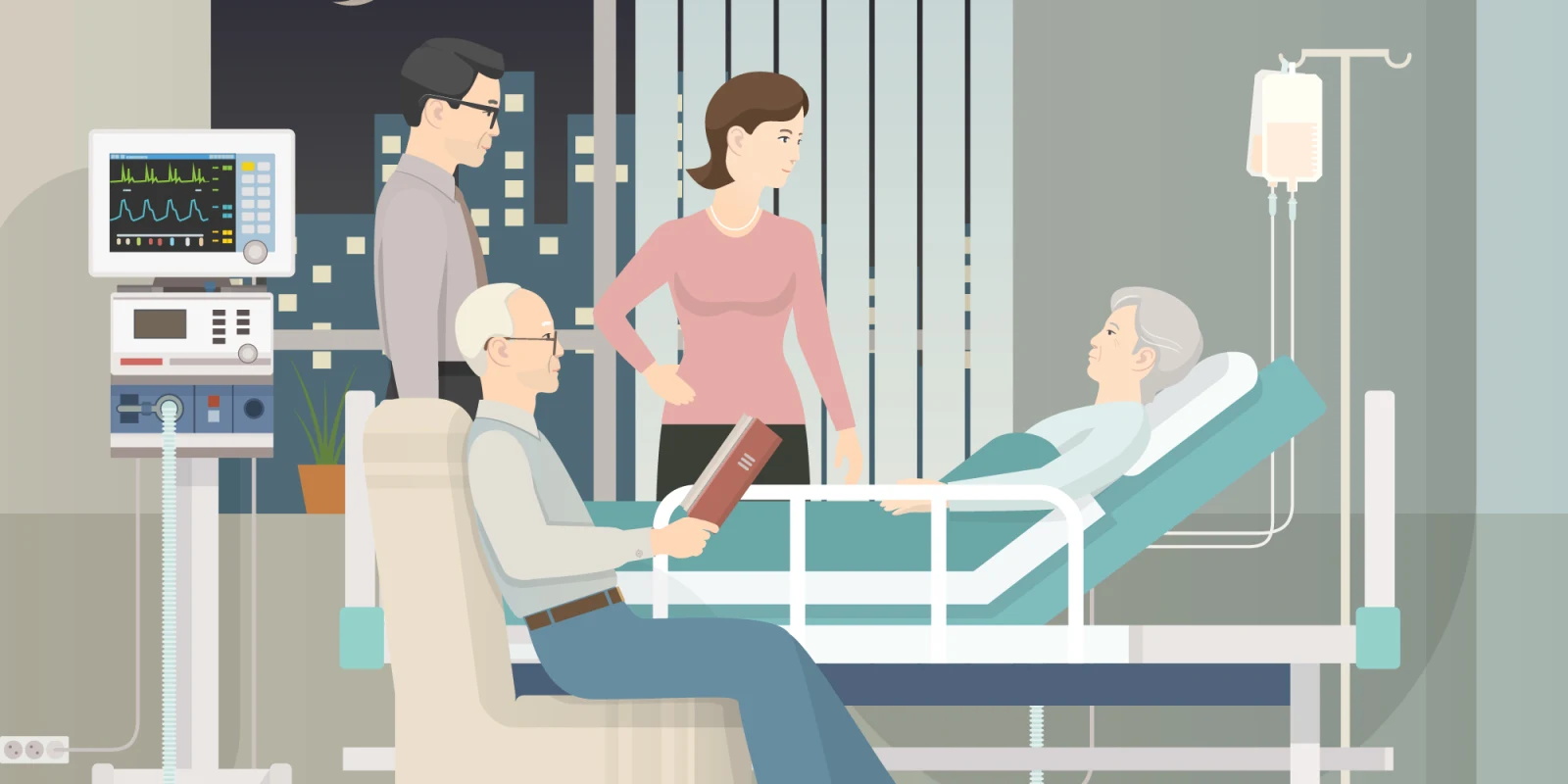
Mrs. R presented to the emergency department from the nursing home, her fourth admission in six months. In her 90s, she was riding that train between nursing home and hospital that many elders ride during the last year of life. She had no advance directives in place, so was by default, a full code. She had profound anemia and the hospitalist ordered a colonoscopy. The nurses balked and requested a Palliative Care consult. As the nurse practitioner on call, I performed the consult. I called her husband, who was listed as her next of kin. He answered the phone on half a ring, breathless, someone waiting for bad news. He was a retired officer, as was Mrs. R. During her life review, he recounted their active duty days and boasted about Mrs. R’s army career. I met with Mrs. R the next day.
“Captain R.” I stood at her bedside.
Her eyes shot open. “Yes?”
“I heard you were an army nurse.”
“I AM an army nurse.”
Then, she drifted back to sleep, softly smiling.
I asked Mr. R what he thought Mrs. R’s wishes would be and he said, without missing a beat, “To go in peace.” Mrs. R returned to the nursing home on hospice care and died peacefully with her husband by her side.
Technology is keeping people alive far longer than those being kept alive ever dreamed possible. Warehoused in nursing homes, fragile elders are particularly vulnerable, often suffering aggressive interventions at the end of life. Survival rates among nursing home residents who receive cardiopulmonary resuscitation is 1.7 percent, yet only 59 percent of nursing home residents have advance directives. And, 65 percent of people admitted to nursing homes die within one year. Given this, it seems we could do better in obtaining advance directives.
Why are providers reluctant to have these conversations? Many say it’s lack of time, others admit discomfort with the topic. In a profession that values saving lives, talking about death just isn’t cool. Clinicians talk about beating cancer, battling Alzheimer’s and fighting Parkinson’s — words that imply there is an outcome other than death possible, if only the patient would fight harder.
A life review, the process of reminiscing about the patient’s life, helped Mr. R remember the brave, smart woman he married. She was a hero, exhibiting courage and dignity in her life. Reminiscing allowed him to make a decision that afforded her the dignity and courage in death that she had shown in life.
The lack of advance directives is also a product of a broken health care system. Medicaid, the largest payer in nursing homes, pays approximately $203 per day per nursing home resident. Nursing homes have come to rely on Medicare payments to offset the difference, a sort of “robbing Peter to pay Paul” system. When a resident is ill, the nursing home sends him to the hospital for care, care that could often be received in the nursing home. If the resident is hospitalized for three days, he returns to the nursing home on “skilled” level of care, which Medicare pays approximately $550 per day, depending on the acuity level of the patient.
Mrs. M, a resident in her late 80s with Parkinson’s disease, was sent to the emergency department when she became confused. She lay on a stretcher for 18 hours, becoming dehydrated and delirious. Then, she fell off the stretcher and fractured her hip. She returned to the nursing home on skilled rehabilitation care. The reason for the hospitalization? Urinary tract infection, an illness that could have been treated in the nursing home. Mrs. M never walked again, was in constant pain, and became depressed.
One easy fix is for Medicare to reimburse for interventional care in the nursing home. This simple measure could save billions of dollars annually and provide nursing homes with the money they need to care for residents when they are ill. Most importantly, it would stop patients like Mrs. R and Mrs. M from riding that train between nursing home and hospital. At 35 thousand dollars spent per Medicare decedent during the last year of life, it is an expensive — and unnecessary — ride.
Margaret Ackerman, DNP, APRN, is an associate professor and coordinator of the Adult-Gerontology Nurse Practitioner program at Salem State University in Salem, Massachusetts. She has 25 years of experience as a practicing NP working with underserved populations.






